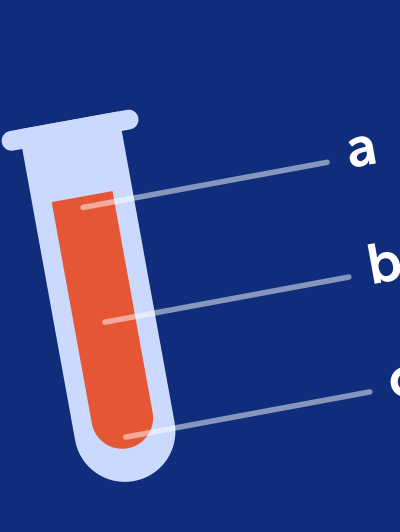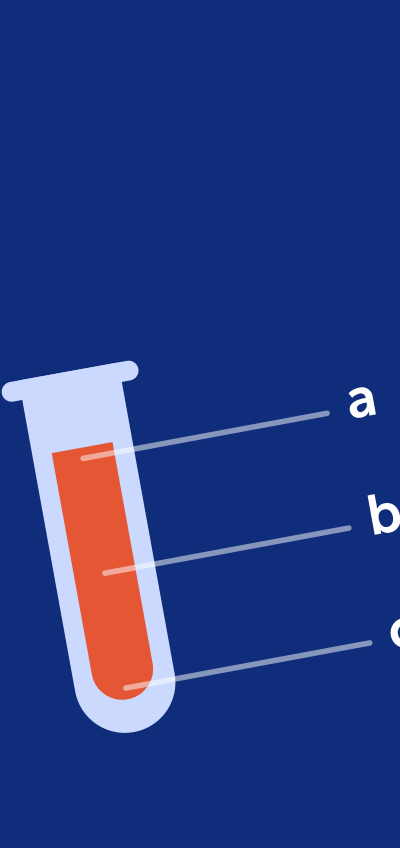
The Daily NCLEX® Challenge is the easiest way to ace your NCLEX exam the first time! Join today, and access 7 days of Premium for free.
Sign up now to receive your first challenge →
Have you ever wondered what you need to know about shock as you prepare for the NCLEX exam? Shock is a complex disease process with different stages and types. It can even be life-threatening if not treated early.
The NCLEX exam includes many different types of questions including shock NCLEX questions. So while you’re studying for the NCLEX, don’t forget to be sure you have an understanding of how shock manifests within the human body and how to care for shock patients.
Let’s begin by discussing what shock is. Then we can gain a deeper understanding of the stages of shock and the different types of shock. Finally, we’ll finish with some sample shock NCLEX questions to get you ready to go for your NCLEX exam.
Shock occurs when cardiac output is decreased to a point where the organs aren’t getting adequate perfusion due to cell hypoxia, therefore they can fail. It often occurs with an infection, injury, or medical event. When organs aren’t being adequately perfused, multiple organ dysfunction syndrome (MODS) can occur. This can progress to a point where the shock is irreversible and death is inevitable.
Be aware that shock is a serious medical emergency that must be treated quickly and aggressively. Caring for patients with shock falls into critical care nursing. As a nurse, your job is to closely monitor and care for the patient in order to catch and prevent further complications from occurring. Your role is crucial to the patient’s well-being, so having a full understanding of shock is absolutely essential.
The symptoms of shock include:
If this sounds overwhelming already, don’t worry. We’re going to break it all down so you have a nice overview of what to expect for shock NCLEX questions.

There are four different types of shock you need to know in regards to shock NCLEX questions. Each has a different path that leads to similar outcomes. Your job as a nurse is to be able to assess for the symptoms of each type of shock and know its appropriate treatment so that you can properly care for your patients. It’s also important to know the types of shock so that you use the correct nursing interventions.
Cardiogenic shock is caused by damage to the heart that leads to decreased stroke volume. This causes decreased cardiac output and perfusion. It’s often caused by a myocardial infarction (heart attack).
Hypovolemic shock is caused by severe blood or fluid loss which causes decreased tissue perfusion due to the decreased blood volume overall. This is due to losing approximately one-fifth of your total fluid volume. Some causes of hypovolemic shock are excessive diarrhea, injury, or burn.
There are three types of distributive shock to be aware of.
Septic shock is caused by an infection that goes haywire and becomes systemic. This leads to extremely low blood pressures that dramatically affect organ function. The pathogens involved in the infection can even release toxins that further damage tissues. This can be caused by recent infection, recent surgery, diabetes, or the long-term use of antibiotics to name a few.
Anaphylactic shock is caused by an allergic reaction and is life-threatening. After exposure to an allergen, the person's whole body is affected, causing extreme difficulty breathing that can progress to shock. Common causes are medications, foods, or insect bites.
Neurogenic shock is caused by damage to the nervous system such as a spinal cord injury or traumatic brain injury. The low blood pressure that ensues results in decreased tissue perfusion to vital organs. Of all shock types, this is the only one associated with bradycardia instead of tachycardia.
Obstructive shock is similar to cardiogenic shock but is caused by a blocked blood vessel within the heart or the great vessels (aorta, pulmonary artery, superior vena cava, and pulmonary veins).

There are four stages of shock to be aware of for the shock NCLEX questions and for your nursing career. It’s important you’re aware of how to manage each stage and type of shock as a nurse.
During these initial stages of shock, lactic acid production increases, cardiac output decreases, and tissue perfusion is a real concern. At this point, the body is trying to do everything it can to reverse the effects of shock.
You can expect to see tachycardia, renal fluid retention to increase preload, changes in systemic blood pressure, and peripheral vasoconstriction as the body attempts to force blood to major organs instead of the limbs. The body is trying to compensate and maintain perfusion, increase cardiac output, and stabilize blood pressure. If interventions don’t happen quickly, these increased demands on the body can quickly lead to worse outcomes. But do note that this stage is reversible with immediate treatment.
When shock gets to a progressive stage, it becomes imperative that it’s reversed. At this point, the body can no longer keep up with the tissue needs and can progress into MODS. Decreased cerebral perfusion causes the patient’s neurological status to rapidly deteriorate. As the mean arterial pressure (MAP) lowers to less than 60 mmHG, tissue perfusion is near impossible.
This leads to renal failure, liver failure, GI bleeds, disseminated intravascular coagulation (DIC), acute respiratory distress syndrome (ARDS), microemboli development, and heart failure. In addition, this stage of shock can be reversed, but long term damage may result.
The last stage of shock is irreversible. At this point, the organ damage is so great the result is multi-organ failure and ultimately death.
When answering practice shock NCLEX questions, always be thinking of what symptoms you can expect to see and what you should be doing as a nurse for your patient. Also be aware of appropriate laboratory values for common labs associated with shock such as:
Nursing care and interventions you should be aware of for shock NCLEX questions include but aren’t limited to:

Shock NCLEX Question #1
A patient arrives at the emergency department with a gunshot wound to the abdomen. His symptoms coincide with hypovolemic shock. Which of the following symptoms would you expect to see in a patient with hypovolemic shock?
Answer: B — The fluid loss in hypovolemic shock causes tachycardia, rapid, shallow breathing, and a weak pulse.
Shock NCLEX Question #2
You are caring for a patient who suffered a motor vehicle accident and now has a severe injury to his spinal cord. He’s diagnosed with neurogenic shock. What nursing interventions should you complete? (Select all that apply)
Answer: A, C, and E — Patients with neurogenic shock should not be given vasodilators that will widen blood vessels and cause further hypotension. Also, never move a patient with a spinal cord injury. Atropine will correct the patient’s bradycardia. A vasopressor will constrict blood vessels which will increase the blood pressure. And finally, a patient with shock should always have vital signs closely monitored.
Shock NCLEX Question #3
You are administering dobutamine to a patient with septic shock. What should you monitor for after beginning this medication?
Answer: A — Dobutamine is given to increase cardiac output and contractility in patients who have already been given a vasopressor and IV fluid resuscitation. You should watch for hypotension because dobutamine produces systemic vasodilation causing hypotension. The other choices aren’t associated with dobutamine.

Shock is quite a heavy topic, but when you break it all down, it functions like a snowball. It starts out small, but can rapidly progress until the point when it’s completely out of control. As a nurse, your role is an extremely important part of a patient’s outcome. Practicing shock NCLEX questions now won’t just help you pass the NCLEX, it can help you save someone’s life.
For more shock NCLEX questions like these and many others, check out the Daily NCLEX Challenge where you can get a question a day emailed right to your inbox. Join the premium version for access to detailed answer rationales. You’ll also get to compete against your friends for a chance to win exciting prizes and see who can make it to the top of the leaderboard.
Practice questions, including shock NCLEX questions, are a fun, easy way to increase your odds of passing the NCLEX on your first try.
If you are still in nursing school, use these strategies and tips on your nursing exams.
Continue reading

There are always a few more things you can squeeze in last minute to boost your chances of passing.
Continue reading
